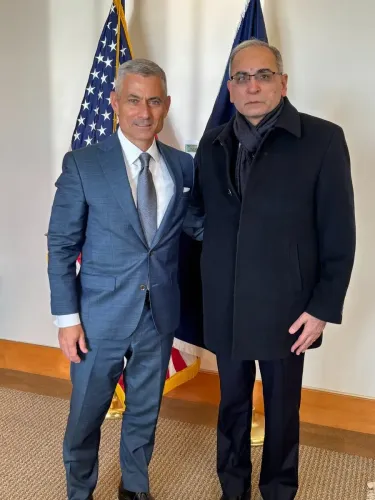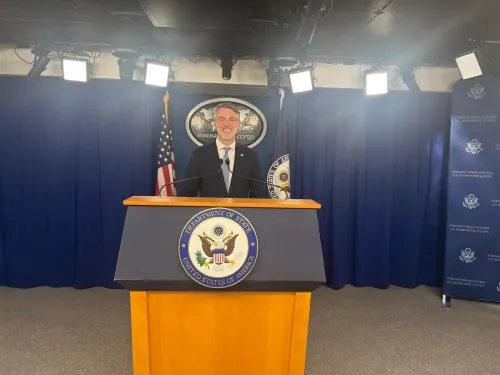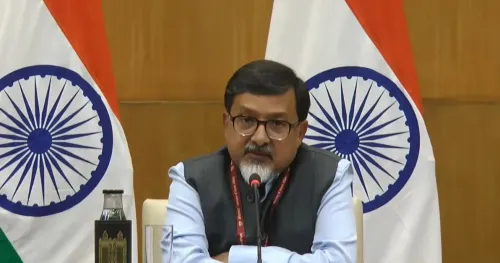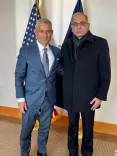Will the Danish Foreign Minister Summon the US Ambassador Over Espionage Claims?
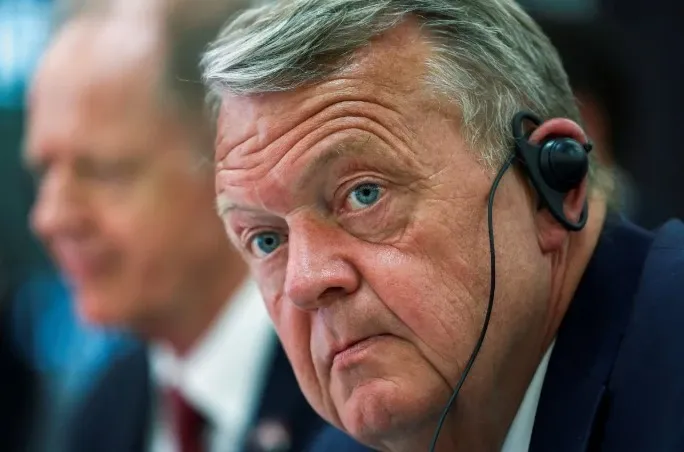
Synopsis
Key Takeaways
- The Danish Foreign Minister is set to summon the US Ambassador over espionage reports.
- US espionage activities could jeopardize trust between Denmark and the US.
- Greenland's status as an integral part of the Kingdom of Denmark remains a sensitive topic.
- Denmark's domestic security agency has raised concerns about foreign influence.
- Diplomatic discussions will aim to clarify the situation and refute allegations.
Oslo, May 8 (NationPress) Danish Foreign Minister Lars Lokke Rasmussen has announced plans to call in the US Ambassador to Denmark for discussions, following media reports indicating that the United States intends to escalate its espionage operations aimed at Greenland.
This decision follows a report from The Wall Street Journal on Tuesday, which claimed that US intelligence agencies have been directed to pinpoint individuals in Greenland and Denmark who align with American strategic goals concerning the Arctic territory, based on unnamed sources.
"I have read the article, and it troubles me significantly -- as we do not engage in espionage against friends," Rasmussen remarked to Danish broadcaster DR while en route to a gathering of Foreign Ministers in Warsaw, Poland.
While acknowledging the report's unverifiability, Rasmussen pointed out that it hasn't been firmly denied by US officials, as reported by Xinhua.
"That concerns me," he added.
He confirmed that the American Ambassador will be invited for discussions at the Ministry of Foreign Affairs in Copenhagen.
"The goal is to determine if we can refute this rather alarming information -- and in any case, to clarify our stance. It is very worrying if the strategy now includes intelligence gathering in Denmark and Greenland," Rasmussen stated.
The alleged espionage activities have further strained US-Danish relations, which were already tense due to former US President Donald Trump's repeated interest in acquiring Greenland -- a proposal that incited political backlash across Denmark.
"Everyone is susceptible to influence. That’s why it is serious if a close ally of Denmark and Greenland is speculating on intelligence gathering and attempting to exert influence with the intent of undermining the unity of the Kingdom and taking control of Greenland," Rasmussen commented, expressing skepticism about the success of such US endeavors.
Earlier on Wednesday, Denmark's domestic intelligence agency PET released a statement indicating an "elevated espionage threat and foreign influence risk against both Denmark and Greenland" due to heightened international interest in the region.
Greenland, formerly a Danish colony, became an integral part of the Kingdom of Denmark in 1953. It was granted home rule in 1979, enhancing its autonomy, although Denmark continues to oversee foreign affairs and defense.

